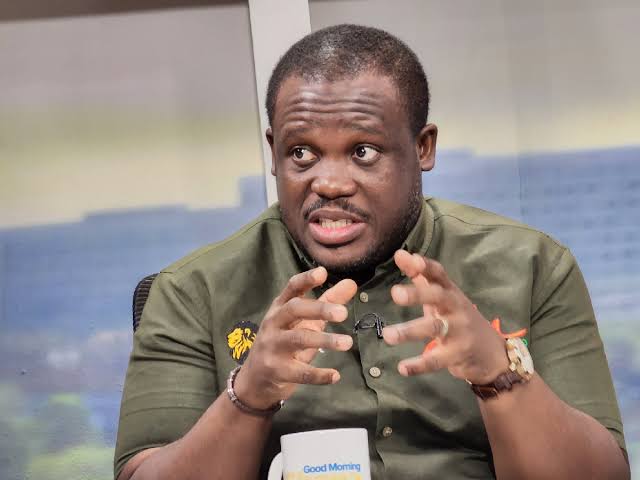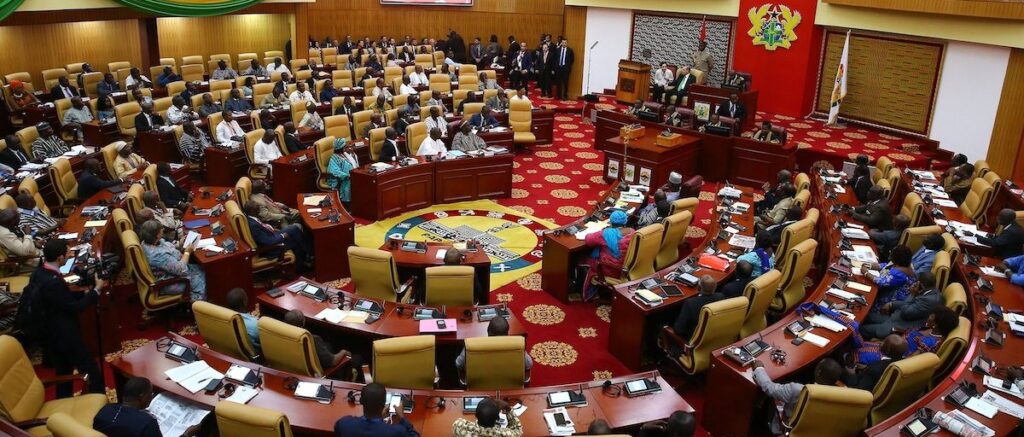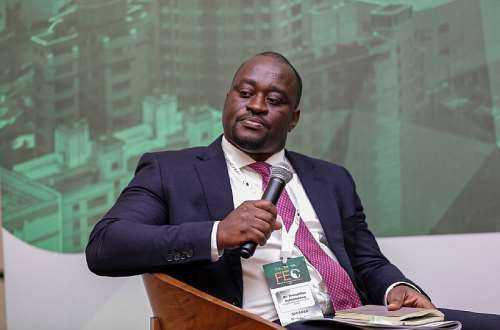Ghana’s LGBTQ community braces for trouble if anti-LGBTQ bill becomes law
Colin Stewart is a 45-year journalism veteran living in Southern…
‘What crime have we committed by just being ourselves?’

In Ghana:
- Edem, a queer, non-binary person, fears that if the nation’s newly passed anti-LGBTQ bill becomes law, it will “open a floodgate” of arbitrary arrests and detention of LGBTQ people.
- Phoebe, a lesbian, lost her job because of her sexual orientation and now fears that workplace discrimination will get worse if the bill is enacted.
At the same time:
- Ishak, a devout Muslim, supports the bill and believes LGBTQ is a lifestyle choice imported from the West.
Those are some of the people whom the American public-radio program “The World” contacted for its recent report on the situation in Ghana as the nation awaits news of whether the harsh anti-LGBTQ bill will become the law of the land.
The bill, passed unanimously by Parliament in February, still awaits action by Ghana’s Supreme Court and President Nana Akufo-Addo.
If enacted, the bill would expand on the current law that provides a three-year prison sentence for same-sex intimacy. The new bill would add the same punishment for people who:
- Identify as (“hold out as”) LGBTQ;
- Participate in gender-reassignment surgery; or
- Enter into a same-sex marriage or attend a same-sex wedding.
It would impose prison sentences of up to 10 years on people who “promote” LGBTQ activity.
In a departure from the original wording of the bill, it would not promote “conversion therapy”, a harmful and ineffective practice that seeks to turn LGBTQ people straight.
This is the article on the website of “The World”:

‘What crime have we committed?’ Ghana’s LGBTQ community braces as anti-LGBTQ bill may turn into law
By Ridwan Karim Dini-Osman
As a queer, non-binary person living on the outskirts of Accra, Ghana, Edem Brew said they have endured years of discrimination, physical assaults and verbal attacks.
“LGBTQ people have to look over their shoulders all the time,” Brew said. “And personally, in my life right now, I am still navigating it. Almost everyone in this country has become very insensitive toward us.”
Ghana’s parliament recently made a unanimous decision to pass a proposed anti-LGBTQ legislation that has Brew and other members of the lesbian, gay, bisexual, transgender and queer (LGBTQ) community worried.
Introduced in 2021, the controversial bill titled “Promotion of Proper Human Sexual Rights and Ghanaian Family Values” proposes a three-year prison sentence for those identifying as LGBTQ and a five-year sentence for those advocating on behalf of LGBTQ people. The bill could lead to a severe, unprecedented crackdown on LGBTQ activities.
Brew said the bill is dehumanizing and regressive.
“It is not just banning advocacy, but then it is also banning people sympathizing with the queer community,” said Brew, who fears the legislation will “open a floodgate” of suspicions that could lead to the arbitrary arrests and detention of LGBTQ people in Ghana.
The international community has issued warnings urging the country not to reverse course on its enviable democratic credentials with the passing of this bill.
Ishak Saeed, devout Muslim
But there’s been overwhelming support for the legislation in Ghana from people like Ishak Saeed, who believes that LGBTQ is a lifestyle choice imported by the West.
In his modestly furnished one-room apartment in Accra, Saeed said that, as a devout Muslim, he appreciates that his faith emphasizes peaceful coexistence and teaches the importance of love. However, he said that his religion forbids homosexuality and that African countries like Ghana should be allowed to uphold their own cultural values instead of following Western ones.
“Why should LGBTQ people be advocating openly in our country? That’s unacceptable. They are just telling children that it’s OK for a man to love a man sexually. That’s where I draw the line, personally. I don’t know how that makes sense to them,” he said.
But Ghana’s LGBTQ community says the enactment of the bill will worsen their plight in a country where 93% of the people already say they do not wish to have LGBTQ people as their neighbors, according to a recent survey.
Phoebe, a lesbian
Phoebe, a lesbian who asked to be identified by her first name only due to security concerns, said she is still in disbelief and shock that Ghana’s parliament passed the anti-LGBTQ bill. She worries that the bill will worsen an already dire situation of exclusion, scarce employment opportunities and discrimination in the workplace.
“I lost my job because of my LGBTQ identity and life has been hard for me since then,” Phoebe said. “What crime have we committed by just being ourselves? Are we going to be thrown into jail for simply being created by God?”
Phoebe said she hopes President Nana Akufo-Addo will use his background as a human rights lawyer to protect the rights of LGBTQ citizens.
Bwenbale, a gay Ugandan immigrant
Bwanbale, a gay man from Uganda who moved to Accra a few months ago, said Ghana should not follow the “terrible example” set by his country. He also asked not to share his last name due to security concerns.
“I moved here because I thought Ghana is one of the safest countries in Africa but now, I am even scared. The height of homophobia I have seen online in the last few days makes me sick. Our continent has a really long way to go,” he said.
For the bill to become law, Akufo-Addo still needs to sign it. He has indicated a willingness to sign it if supported by the majority of Ghanaians, but he said he is waiting for a ruling from the Supreme Court on a case challenging the bill.
And there may be other reasons why the president is reluctant to sign the bill.
Ghana’s finance ministry has warned that if the bill is enacted, Ghana may lose $3.8 billion in World Bank funding over the next five to six years. The ministry also says there’s a risk of disrupting the $3 billion International Monetary Fund bailout, which became a crucial lifeline during Ghana’s recent worst economic crisis.

Theo Acheampong, economist
An economist, Theo Acheampong, said that Ghana’s economy is still vulnerable and that the bill could cause significant disruptions.
“It is going to be tough if the president allows this legislation to go through,” he said. “You either have to make major expenditure cuts or increase additional revenue. The prospect of increasing revenue through taxation is just a non-starter, especially given that we’ve got elections also this December.”
The bill is backed by the two main political parties in Ghana.
The president’s failure to sign it could hurt the ruling New Patriotic Party — especially with Vice President Mahamudu Bawumia as their candidate in the upcoming Dec. 7 election.
Last year, Uganda passed an anti-LGBTQ law that sparked sanctions from the United States that ejected them from the African Growth and Opportunity Act (AGOA), which provides favorable trade terms.
In 2022 alone, about $700 million of Ghana’s exports to the US benefited from AGOA. If Ghana is removed from AGOA, it won’t be able to export products to the US tariff-free.
Acheampong is also concerned that some international development agencies and donors may also withdraw funds if the bill takes effect.
“This will impact programs that are funded by donor partners and others at the grassroots, and it will have real implications for livelihoods. One area most likely to be hit the hardest is the health sector,” he said.
If the president doesn’t sign the bill, however, he could pay the price politically in the country’s upcoming presidential and parliamentary elections.
As the nation awaits the fate of the proposed law, human rights organizations like Amnesty International are calling for massive public education across Ghana to enhance understanding of LGBTQ rights.
“I don’t like LGBTI [lesbian, gay, bisexual, transgender, intersex], but I will respect their existence, and I will respect that that is their identity, and it shouldn’t be criminalized,” said Genevieve Partington, country director for Amnesty International. “I think we need to move more to that language than ‘I hate LGBTI and I think they should be in jail.’ That is definitely an abuse of human rights.”
It is not clear how long it will take for the Supreme Court to determine the legality of the bill. But for a country where the wheels of justice grind slowly, it could take several months — or even years.




